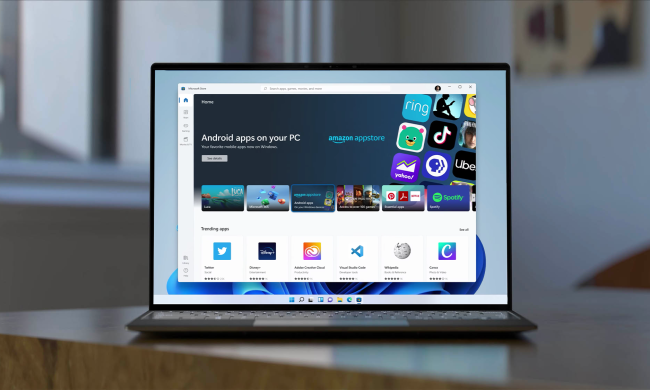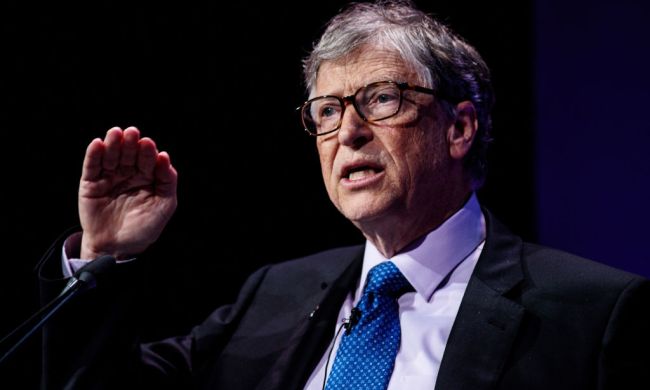
Microsoft co-founder Bill Gates took the stand today as the first witness in a case brought against Microsoft by Novell that dates all the way back to the dark days of Windows 95. In a nutshell, Novell claims Microsoft abused its monopoly power in the desktop operating system market to crush WordPerfect when Microsoft launched Windows 95—and, with it, a Windows 95-compatible version of Microsoft Office. Microsoft claims no such strategy: according to the company, it offered Novell early access to Windows 95 so they could make a version of WordPerfect, and it’s not Microsoft’s fault Novell couldn’t get its act together in time for the operating system launch.
If the trial goes badly, it could be costly for Microsoft: Novell is suing for $1 billion in damages.
The case is rather ironic for a company that doesn’t really exist anymore: earlier this year, Novell wrapped up selling itself to Attachmate in a $2.2 billion deal. As part of the arrangement, Novell sold a considerable amount of patents and intellectual property to Microsoft, but—in a relief to the free and open source community—did not include the copyrights to Unix, which it acquired in 1993 along with AT&T’s Unix System Laboratories.
However, this case dates to 2004, when Novell managed to wrangle a $536 million settlement out of Microsoft to alleged patent and antitrust violations over knocking Novell Netware—the company’s groupware and networking tools—out of the market. However, the same day Novell won the settlement, it announced it would launch a separate antitrust suit against Microsoft over its WordPerfect and Quattro Pro business. That case has been wandering slowly through the courts ever since, with Microsoft even appealing portions of the case to the U.S. Supreme Court. In the intervening years, five of six claims Novell has made against Microsoft have been dismissed—but last May an appeals court ruled that the last remaining point can go to trial. And that trial is now underway.
According to Novell, Microsoft conspired to keep WordPerfect (and its companion spreadsheet product) Quattro Pro off Windows 95 by hampering Novell’s ability to develop a version for Windows 95. Although today Microsoft Word is the 800-pound gorilla of word processing, it’s important to remember that before Windows 95, WordPerfect accounted for about half the market. Novell concedes Microsoft was under no obligation to provide early access to Windows 95, but the company did anyway so Novell would work on WordPerfect for Windows 95. Then, months before Windows 95 was due to launch, the support vanished, leaving Novell high and dry. The reason, Novell alleges, is that Microsoft wanted to bolster its own Microsoft Office suite, and didn’t feel that was possible if WordPerfect were available for Windows 95.
Microsoft, conversely, claims the company decided not to run with WordPerfect as a launch partner because the product wasn’t ready for the Windows 95 launch, and by crashing Windows and behaving poorly would cast a bad light on the entire operating system. According to Microsoft, Novell’s failure to have WordPerfect ready in time for Windows 95 is the company’s own fault. Microsoft is seeking to have the case dismissed outright.
Bill Gates is expected to be on the witness stand most of the day; he opened with a brief history of Microsoft, noting that he founded the company at age 19 with the idea that personal computers would be “on every desk and in every home”—and Microsoft wanted to be the first in that market.
Gates hasn’t been Microsoft’s CEO for many years, and has been focusing much of his attention on the Bill and Melinda Gates Foundation. The influence and reach of the Gates Foundation has truly been substantial—it is the world’s largest private foundation—and Gates has been able to persuade other wealthy individuals like Warren Buffet to sign over significant portions of their assets to fund the Foundation’s initiatives, including a wide variety of programs to combat poverty as well as improve health care and education worldwide.
Nonetheless, the enduring image of Bill Gates in a witness box comes from Microsoft’s 1990s U.S. antitrust trial, in which Gates repeatedly offered deliberately evasive testimony, condescended to prosecutors, and said “I don’t recall” so many times the judge in the case started laughing. Evasive, combative testimony from Gates this time around could do more than hurt Microsoft: it can hurt efforts to combat AIDS, malaria, combat poverty, reform education systems, and bring information technology to schools.


